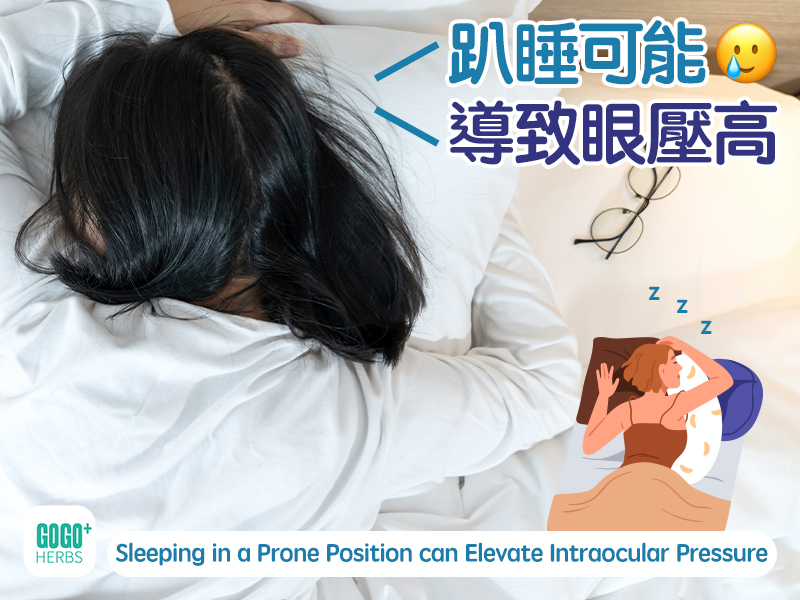Many people are accustomed to sleeping on their stomachs, but eye specialists warn that this sleep pattern may lead toElevated eye pressureThe risk of developing glaucoma increases dramatically. Especially for people with high blood pressure, high blood fat, high blood sugar "three high people", the blood vessels in the fundus of their eyes are relatively fragile, if they keep sleeping on their stomachs for a long period of time, not only will it easily cause vision damage, but also the chances of suffering from chronic glaucoma will increase significantly, and in serious cases, even face the risk of blindness! Doctors emphasise that elevated intraocular pressure is usually asymptomatic, and by the time the problem of narrowing vision occurs, it is often too late to intervene, so it is important to develop a correct sleeping posture. People are advised to always remind themselves to sleep in a flat position and to use pillows to support their heads properly to avoid direct pressure on the eyes.
Ophthalmologist Dr Yau Chun-yuen explains that IOP refers to the pressure inside the eyeball, which serves to maintain the normal shape and function of the eye. IOP rises when the fluid produced inside the eyeball cannot drain out smoothly through the "drainage channel" between the cornea and iris. Under normal physiological conditions, human intraocular pressure (IOP) is usually maintained between 12 and 22 millimetres of mercury (mmHg). IOP values above 22 mmHg are considered to be high.
Dr Yau further pointed out that as it is difficult to detect minor changes in IOP in daily life, most people do not experience any changes in IOP until they haveBlurred visionGlaucoma is not diagnosed until there are symptoms such as eye pain, eye irritation, or even a significant narrowing of the field of vision, at which point it is often too late to protect the eyesight. He reminded the "three highs" that they are more prone to cardiovascular problems, and the normal functioning of the eyes depends on an adequate blood supply. If the blood circulation in the eyes is impaired, it will directly affect the health of the optic nerve, which will in turn increase the likelihood of developing chronic glaucoma.
Talking about the origins of the sleeping habit, Dr Yau mentioned that this habit is often developed during childhood. Babies are used to curling up in their mother's womb, and the sudden change to a flat position after birth may cause a sense of fear due to the change in environment. In the past, there was a medical opinion that allowing babies to sleep on their backs could help reduce their fear. However, subsequent studies have found that sleeping on the stomach may not only increase the risk of sudden unexpected death in infants, but also cause damage to eye health. According to the study data, the human body's intraocular pressure may be about 140% higher than the normal level in the state of sleeping on the stomach; if you keep sleeping on the stomach for 6 to 8 hours a day, the risk of visual impairment will be greatly increased.
Dr Yau has described glaucoma as "a disease of the heart".Sight ThiefIt is also known as "eye disease" because it can gradually deprive patients of their eyesight in a silent manner. In view of this, the medical profession recommends that people aged 40 or above should undergo regular eye examinations. Through professional check-ups, doctors can promptly identify people with high risk factors for glaucoma or those who are susceptible to the disease and provide them with early treatment, thereby helping them to reverse the progression of the disease. In the treatment of glaucoma, eye drops prescribed by doctors are usually used clinically to alleviate the symptoms of narrowing of the visual field. If the condition does not improve with the use of medication, surgical treatment may need to be considered.
There are four main types of glaucoma surgeries commonly performed clinically, namely "laser surgery" (e.g., elective trabeculoplasty), "glaucoma implant surgery", "open surgery" (e.g., trabeculectomy and catheter implantation), and "cryosurgery". Dr Yau explained with the example of trabeculectomy, which creates a small hole in the eyeball through which the aqueous in the anterior chamber of the eyeball can drain out of the body, thus relieving the intraocular pressure.
Catheter implantation, where a special catheter is implanted inside the eye so that the anterior chamber fluid can be drained to the outside of the eye through the catheter, is mainly used in glaucoma patients who have failed to undergo drainage surgeries or those who have complicated glaucoma conditions. The principle of cryosurgery is to destroy the tissue responsible for aqueous production through cryosurgery, thus reducing the amount of aqueous production and controlling intraocular pressure.


